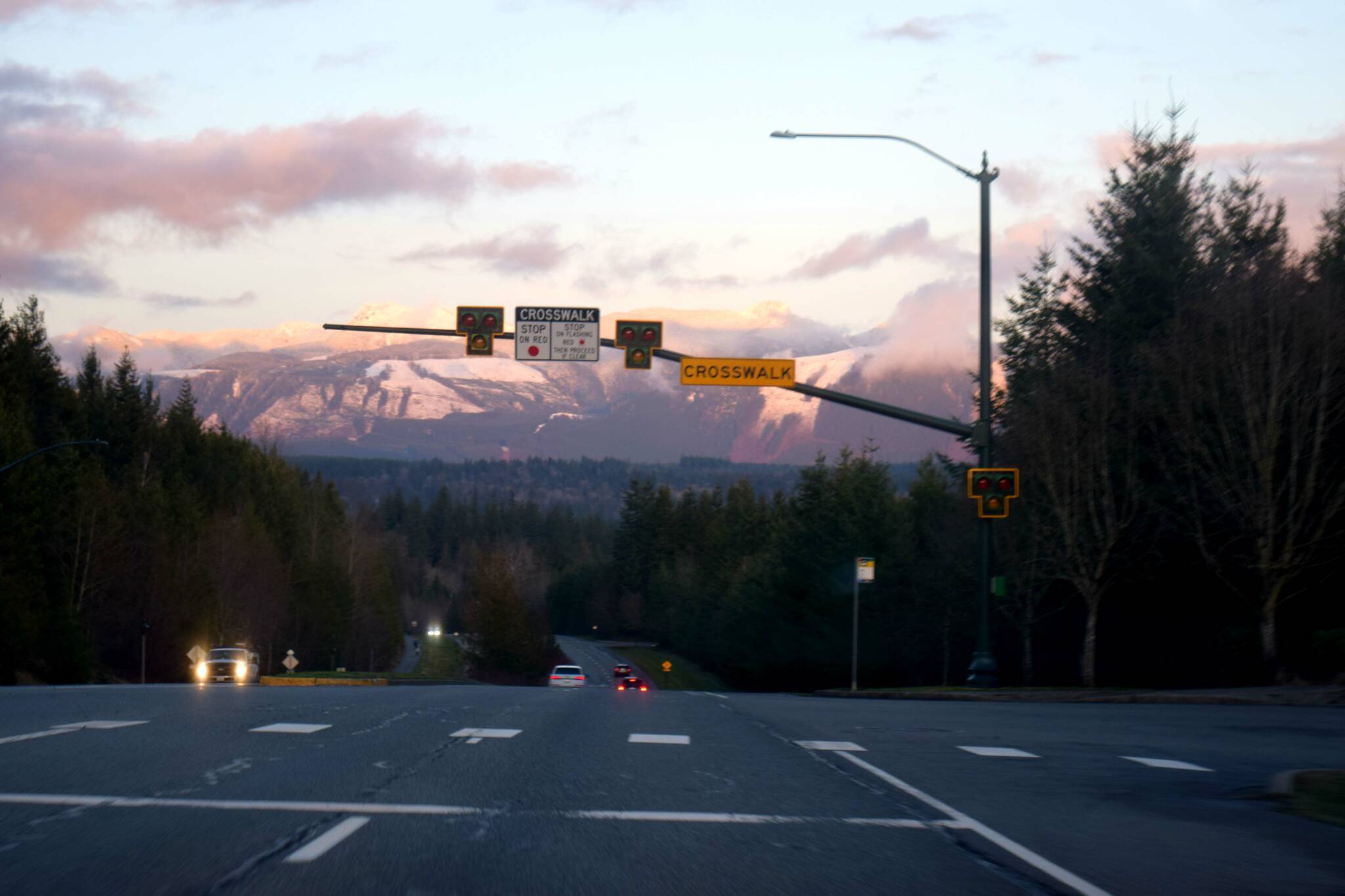Who owns the Snoqualmie Parkway and, more importantly, whether Snoqualmie taxpayers will be responsible for financing its future maintenance, will likely remain unanswered for a few years.
Members of the Washington State Transportation Commission, a state-body who reviews transportation policy, voted unanimously Wednesday to defer a final decision on the roadway’s jurisdiction until a state-wide study can be complete. Now, a final verdict is unlikely to happen before 2026 or 2027.
The ruling comes as a setback for the city of Snoqualmie, who submitted a jurisdiction transfer request to the commission last year seeking to relieve themselves of the parkway’s financial burden. City officials asked for the parkway to be designated as a state highway, shifting its ownership and future maintenance costs from the city to the Washington State Department of Transportation.
Snoqualmie, as a small city, had for years struggled to fund improvements and maintenance on the parkway. They were able to complete a full repaving project last summer, but that only happened after they received a $5 million allocation from the state transportation budget.
Snoqualmie officials argue the parkway, due to its proximity to State Route 202, State Route 18 and I-90, functions as a state highway. Much of the damage done to the road is caused by pass-through truck traffic that generates no revenue or benefit to the city, they argue, putting city taxpayers on the hook for repairs.
WSDOT officials have expressed opposition to the city’s request, arguing the city’s transfer request is a one-sided effort to release them from their financial responsibilities. They disagree with the city’s claim that most truck traffic doesn’t benefit the city, and have expressed concern with the parkway’s pavement condition.
“We appreciate the Washington State Transportation Commission reviewing the City’s Route Jurisdiction Transfer request for Snoqualmie Parkway and look forward to continued negotiations with WSDOT about maintenance of Snoqualmie Parkway,” Snoqualmie Mayor Katherine Ross said in an email.
“While we believe the city met Route Jurisdiction Transfer criteria as as defined by state law, WSDOT does not agree with our interpretation of several points,” she added.
The vote to defer comes after disagreement over how to interpret a number of state statutes defining what constitutes a state highway, said Paula Reeves, a senior policy analyst with the commission. Those requirements include, among other things, the road is an urban extension of a rural state highway into or through an urban area and is necessary to form an integrated state highway system.
“While the Parkway, the Snoqualmie Parkway, appears on its face to meet the current criteria in statute, there is an ongoing dialogue and disagreement over a number of important issues,” Reeves said.
Commission officials say they are hoping to gain some clarity on statute disagreements once a state-wide Route Jurisdiction Transfer Request Study is completed. State legislators mandated the the study as part of the 2023-2025 transportation budget. It aims to review current highway inventory and update statutes on highway designation.
The current criteria for designating a state highway is old and outdated, said Reema Griffith, the executive director of the transportation commission, and many aspects need to be updated.
“This study is much needed,” she told the commission in July.
The study, which will begin next year, will finish in July 2025, Griffith said. State legislators would have their first opportunity to consider those findings and update statutes during the following legislative session in January 2026.
This month, the commission adopted a moratorium on transfer proposals, agreeing not to hear any more requests for jurisdiction transfers on state roadways — including Snoqualmie’s — until the legislators have weighed in. The commission will not consider any request until late 2026 or early 2027, Griffith said.
“It feels like a good time to put a pause on the program, so that we can reestablish what the criteria should be, and then wait for the legislature to see what they’ll codify or not before we take up any further requests,” she said.
Meanwhile, negotiations over the parkway and its maintenance are expected to continue, Ross said. Those discussions could potentially develop a solution independent of and prior to the results of the release of the jurisdiction study, she said.


